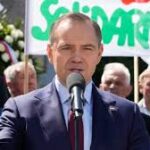Aviation workers in Nigeria have suspended their planned nationwide protest scheduled for September 18, 2024, which was initially organized in response to the Federal Government’s 50% deductions from the internally generated revenues (IGR) of key aviation agencies. Last week, aviation unions criticized the government for refusing to reverse this deduction policy, which significantly impacts the financial capacity of vital institutions within the aviation sector.
The affected agencies include the Nigeria Civil Aviation Authority (NCAA), the Federal Airports Authority of Nigeria (FAAN), the Nigeria College of Aviation Technology (NCAT), the Nigerian Meteorological Agency (NiMet), and the Nigerian Safety Investigation Bureau (NSIB). These institutions play crucial roles in regulating and ensuring the safety of the country’s aviation industry, making the deductions a sensitive issue that could affect their operations and efficiency.
However, on September 17, 2024, a statement signed by Olayinka Abioye, the General Secretary of the National Association of Aircraft Pilots and Engineers (NAAPE), confirmed the suspension of the protest. According to the statement, the suspension follows information received regarding ongoing high-level discussions between government authorities and the unions on the controversial deduction policy. Abioye assured union members that the outcome of these discussions would be communicated appropriately and that the suspension was only temporary, pending further developments.
The unions had previously expressed deep concerns that these deductions were undermining the aviation agencies’ capacity to function optimally, warning that this could compromise safety standards and services. Now, with negotiations underway, workers are hopeful for a favorable resolution, though the potential for further industrial action remains if talks fail to produce satisfactory results.
This situation raises questions about the sustainability of government funding practices in essential sectors like aviation and whether such policies compromise the efficiency of critical public services. Will the Federal Government be willing to reconsider its stance, or are further protests likely if the unions’ demands are not met?









